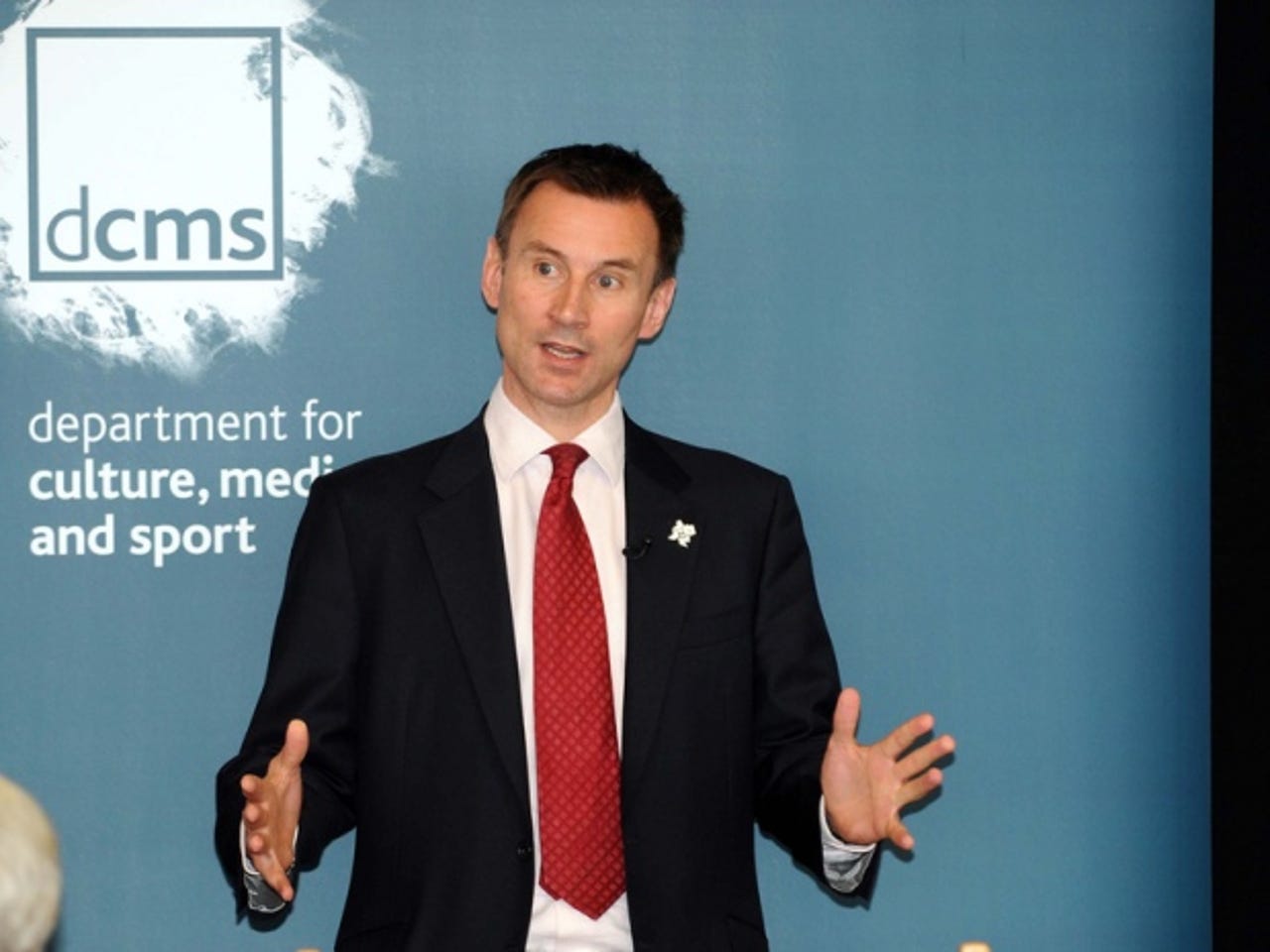UK broadband: Hunt defends need for speed

Culture secretary Jeremy Hunt has defended his focus on putting headline broadband speeds at the top of the UK's broadband agenda in spite of recent criticism by the House of Lords.
On Monday, Hunt reaffirmed his aspirations for the UK to have one of the best broadband networks in Europe, outlining his hope that the country have one of the fastest networks on the continent.

"Today I am announcing an ambition to be not just the best overall, but specifically the fastest broadband of any major European country," Jeremy Hunt said in a speech on broadband in London.
Hunt, who said that broadband infrastructure is essential for the growth of the UK's digital and creative industries, drew parallels between the focus on high speeds in broadband and in the UK's high-speed rail network.
"When our high-speed network opens from London to Birmingham in 2026, it will be 45 years after the French opened theirs and 62 years after the Japanese opened theirs. Just think how much our economy has been held back by lower productivity for half a century," Hunt said.
Pre-occupied with speed
"When the Lords committee criticised me for being pre-occupied with speed, I plead guilty. And so should we all, because we simply will not have a competitive broadband network until we recognise the massive growth in demand for higher and higher speeds," he added.
"When the Lords committee criticised me for being pre-occupied with speed, I plead guilty" — Jeremy Hunt
The speech underlines the government's current Broadband Delivery UK (BDUK) scheme, which aims to provide universal access of 2Mbps to all homes and super-fast (over 25Mbps) to 90 percent of the UK by 2015.
The plan has been criticised for focusing on headline speeds, rather than how it will help more geographically challenging, largely rural areas to attain a reliable, higher-speed connection.
"The danger is that the culture secretary's tunnel-vision emphasis on average speed addresses levels of demand from consumers and businesses for faster connections, but doesn't take rural areas into account — many of these areas are still suffering from patchy service and pitifully slow speeds even in the fibre-optic age," Julia Stent, telecoms expert at uSwitch, said in a statement.
BDUK goals
Hunt said good progress has already been made towards BDUK's goals, citing statistics such as a 50-percent increase in the UK's average home broadband speeds since May 2010 and two-thirds of the population now on packages of more than 10Mbps, a higher percentage than the majority of European countries except Portugal and Bulgaria.
Hunt said the Department for Culture, Media and Sport (DCMS) is still deciding how to use the £300m of BBC licence fee money that has been set aside to fund super-fast broadband access for more than 90 percent of the country. The department is currently undecided whether it will be allocated in the same match-funded process as the rest of the BDUK framework, Hunt said.
The Culture Secretary said a mix of technologies would be used to achieve BDUK's goals, including fibre-to-the-home and fibre-to-the-premises (FTTP), but also conceded that wireless and fixed-wireless would be needed to help bring the fastest speeds to the 90 percent.
Delays
The BDUK process is currently delayed due to EU scrutiny of the way in which contracts are being allocated, over fears of a lack of competition in the bidding process; all project approvals to date have been given to BT. Nevertheless, Hunt said he was confident of getting state-aid approval by the autumn and hoped that the majority of projects will be completed by 2015.
"To achieve this timetable projects will need to be ready on time and they will need to be able to progress through the procurement process without delay," Hunt said.
"Most have been extremely supportive — but we still have some frustrating examples ofinflexible planning — not least Kensington and Chelsea, who have deprived their residents of super-fast broadband investment as a result," he added.